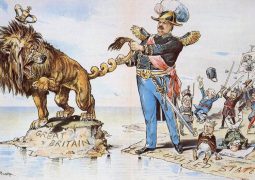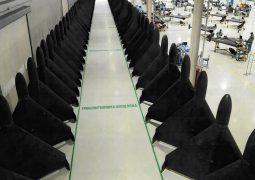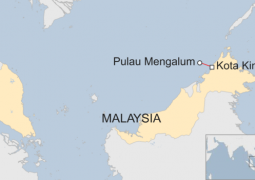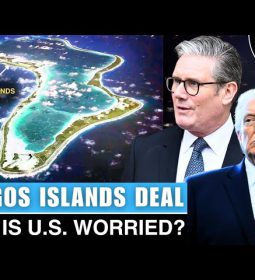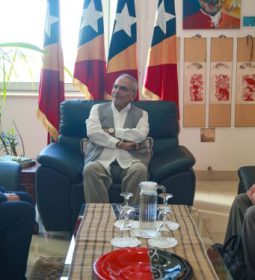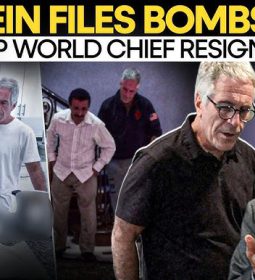Peace in Palestine for 50 bn$: In Bahrain, U.S. Tries to Promote Mideast Peace Through Prosperity


David M. Halnfinger:
MANAMA, Bahrain — Eyeing a future Middle East in which the Israeli-Palestinian conflict is a thing of the past, business executives, billionaire investors and Middle East diplomats gathered in Bahrain on Tuesday for a White House-led conference meant to promote a long-delayed peace plan by trumpeting the economic opportunities it could spawn.
“One who is more hopeful, and sees opportunity for his or her family, will put energy into pursuing opportunity, instead of blaming others for their current misfortune,” said Jared Kushner, President Trump’s son-in-law and leader of the administration’s Middle East peace initiative.
The brainchild of Mr. Kushner and his team, the two-day “Peace to Prosperity Workshop” brought Arab dignitaries in dishdashas and headdresses together with skullcap-wearing Orthodox Jews from Israel and the United States.
It began on a somewhat shaky footing, after the White House’s glossy economic proposal for the Palestinians, published on Saturday, drew a largely negative response. Critics dismissed it as a rehash of ideas put forward in earlier efforts to resolve the conflict, took umbrage at photographs of Palestinians who benefited from American aid programs that the Trump administration has since cut, and assailed its omissions.
The Palestinian Authority boycotted the event, and the Israeli government was not invited. Several Arab countries agreed to attend but, out of deference to the Palestinians, refrained from sending top officials. Jordan, for example, sent its deputy minister of finance.
The one Palestinian speaker on the agenda was Ashraf Jabari, the leader of a large clan in Hebron, on the West Bank, who has forged ties with Jewish settlers and helped form a chamber of commerce for Palestinian and settlement businesses to work together. Palestinian leaders have criticized Mr. Jabari as a political outcast who faces outstanding warrants for bad debts.
More recognizable Palestinian business leaders in banking, real estate, manufacturing, technology and other sectors shunned the event, echoing the Palestinian Authority’s argument that talking about economic improvement before finding a political solution was insulting, as if the Palestinians and their aspirations to statehood could be bought off.
The organizers did not release a list of attendees, but it was clearly a handpicked group. Those mingling beforehand included Shlomi Fogel, an Israeli shipping magnate who is a close friend of Prime Minister Benjamin Netanyahu’s and has been quoted saying that he believes the Arab world is “sick and tired” of the Palestinians and wants the conflict out of the way.
Israel does not have diplomatic relations with Bahrain, a tiny island kingdom in the Persian Gulf tethered by a causeway to Saudi Arabia, but the country agreed to bend visa restrictions to accommodate invitees as well as a handful of Israeli news organizations granted credentials to cover the conference.
tone of the conference’s opening sessions ranged from defensive, in Mr. Kushner’s TED Talk-style presentation about making the Palestinian territories “investable,” to somewhat remote.
In a panel discussion, Stephen A. Shwarzman, chief executive of the Blackstone Group, said the plan was realistic.
“It’s got $27 billion for the Palestinians, and it’s only about 20 percent equity, so it’s not that much,” he said. “It’s like $5.5 billion. We’ve put, at Blackstone, more than $5.5 billion in a single investment. And this is for remaking a region. So I don’t think that Jared’s put together something unachievable.”
Mohamed Ali Alabbar, the Emirati developer of the Burj Khalifa in Dubai, the world’s tallest building, minimized the effect of the Palestinian Authority’s boycott of the conference.
“We are really Palestinian at heart, because the Palestinian issue is our issue,” he said. “So, unfortunately they are not here, it would have been amazing to have them, but I feel like I represent them, because it is my story.”
At the heart of what has made the conference difficult for its critics to take seriously as a meaningful step toward peace is the contradiction between the Trump administration’s high-pressure, punitive approach to the Palestinians over the past two years and its stated desire to support a resolution to the conflict that the Palestinians themselves could stomach.
Mr. Kushner addressed that perception. “My direct message to the Palestinian people is that despite what those who have let you down in the past tell you, President Trump and America have not given up on you,” he said.
Alluding to Palestinian leaders’ mockery of the Trump peace plan as the “deal of the century,” Mr. Kushner said his economic proposal would be “the opportunity of the century, if the leadership has the courage to pursue it.”
The economic plan called for $50 billion in investment to improve the lives of Palestinians and their Arab neighbors, including such long-envisioned improvements as a transportation corridor between the Gaza Strip and the West Bank.
But it made no mention of the blockade of Gaza by Israel and Egypt, or of Hamas, the Islamic militant group that controls Gaza and is designated a terrorist organization by the United States. Its 136 pages say not a word about the Israeli occupation of the West Bank, which poses huge and manifold obstacles to any Palestinian economic development.
David Makovsky, a fellow at the Washington Institute for Near East Policy who was involved in the Obama administration’s effort to broker peace in 2013 and 2014, said he was watching to see whether the conference might lead to concrete steps to improve lives, for example by increasing the supply of electricity or drinking water in Gaza.
“My hope is that after Bahrain, one of the lessons would be, we’re not just saying we’ve put forth a compelling vision of an endgame, but we’re starting down that road to make it more tangible in the short term,” he said.
Khalid bin Ahmed al-Khalifa, Bahrain’s minister of foreign affairs, acknowledged in an interview that some in the region were fatigued by the long-running Palestinian conflict.
“Everybody who deals with it is tired of it, including the Palestinians,” he said. “But we should not close the door in the face of any effort that would take the region in a better path.”
The fact that the conference was getting underway raised hopes for increased cooperation between Israel and its Arab neighbors — or at least for greater cooperation in the light of day.
“It’s been going on for years under the table, but the table seems to be levitating, because it’s very crowded under there,” Mr. Makovsky said.
Yitshak Kreiss, director general of Sheba Medical Center, Israel’s largest hospital, said he had already held meetings with Bahraini leaders that had given him hope of embarking on joint research projects and other ventures in the Arab world. Medicine was an ideal way to begin to cross such boundaries because it was nonpolitical, he said.
“I don’t know yet how feasible it is to begin, but I can tell you what I feel: I feel that in the near future we will do things professionally together,” he said, praising the “Bahraini welcome” he received.
“I’m here,” Mr. Kreiss added, “so I think it can be done.”
The Bahrain meeting coincided with a pledging conference at the United Nations for funding the agency that helps support the roughly five million Palestinians registered as refugees in the West Bank, Gaza, Jordan, Lebanon and Syria.
The United States, formerly the agency’s biggest donor, quit funding it last year, precipitating a financial crisis and aggravating the growing resentments between the Trump administration and Palestinian leaders. Other nations moved to fill the void, but the agency, known as the United Nations Relief and Works Agency or UNRWA, remains vulnerable to cash shortfalls.
Peter Mulrean, director of UNRWA’s New York office, said the conference secured more than $110 million in pledges, compared to $40 million at the same event last year.
“We still need to raise further funds and will continue our efforts, but today represents a significant step forward for 2019,” he said.
Rick Gladstone contributed reporting from New York.
- Previous Conference on future of Palestine waves through MEast: Embassy of Bahrain in Baghdad stormed
- Next Pakistan supports India at UNSC polls





